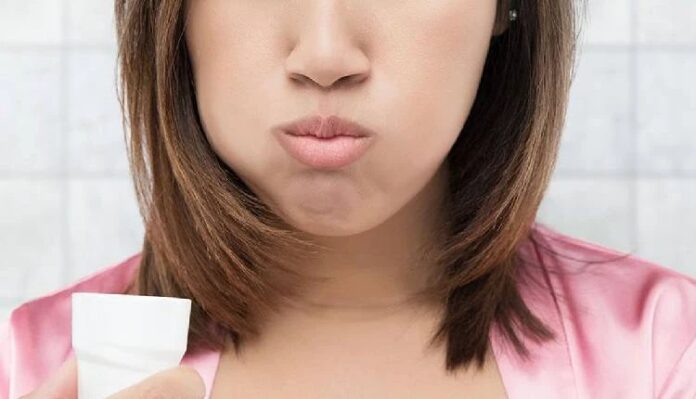Do you know what oil pulling is? It’s an alternative therapy that involves swishing vegetable oil through your mouth to supposedly get rid of harmful bacteria from your body.
People who claim by the procedure assert that it exfoliates teeth, combats bad breath, and removes bacteria from confined spaces. Although it may seem like a fantastic alternate method for caring for your teeth, brushing and flossing will always be necessary. We’re here to inform you of the truth about oil pulling and to provide all the information you require regarding how it may impact your dental health.
Oil pulling enjoyed a brief period of fame a few years ago, but like every previous trend, it was replaced by the next health trend in the media. A spoonful of fluid vegetable oil, typically coconut oil, is poured into your mouth during the oil-pulling procedure, and you swish this around for twenty minutes until spitting it out and washing it off with a toothbrush and paste. The oil is designed to pull gross material from your oral tissues as you push and pull it all through your teeth and mouth, which is one of the ways the procedure gets its name.
Is Oil Pulling Really Good for Dental health?
No, oil pulling is not a successful method of maintaining oral health if it is employed alone without proper flossing or brushing. However, when combined with good oral hygiene practises such as frequent brushing and flossing, it may assist to lessen stains, improving bad breath, and provide other advantages. Sadly, there has been very little research done on the advantages of oil pulling, therefore there is no official opinion. Today, despite the shortage of scientific research on oil pulling, numerous dental experts advise patients who want a more natural alternative to mouthwash to try it.
It makes sense to employ oil pulling since even if you simply swished water in your mouth for about 20 minutes, extra bacteria would be set loose than if you hadn’t. Also, the oil may increase the effectiveness of that swishing effect by acting as a non-polar bacterium magnet. Oil pulling may therefore be seen as a beneficial oral habit. However, it should be done in addition to brushing and flossing every day because it has no effect on preventing tooth decay that has already started and is unable to eliminate plaque and tartar the manner a brush & floss could.
What are the two major side effects of oil pulling?
Lipoid Pneumonia
The absorption or swallowing of oily substances causes lipoid pneumonia. Individuals who use oil pulling could develop lung conditions. When you unintentionally ingest or inhale a lot of swishing oil, it gets into your lungs and airways. This oil may result in lipoid pneumonia because it may be compromised with oral infections and poisons. It has been reported that nonsmokers (as well as ex-smokers) who routinely engaged in sesame oil pulling experienced chest pain and a persistent cough. According to doctors and experts, improper oil drawing can result in external lipoid pneumonia.
Stomach Upset And Nausea
An upset tummy and diarrhoea could result from this antiquated method. You may feel queasy after gargling or swishing a lot of thick oils, such as coconut oil. Your stomach may become upset if you ingest these tainted oils. This is the reason the vast majority of medical professionals think the method of oil pulling is ineffective. Regular tooth brushing and flossing can eliminate more plaque than oil pulling. Therefore, you should avoid oil pulling if you dislike keeping fluids in your mouth and are more likely to swallow it or become nauseous.
Here are some things to remember if you are going to start oil pulling as your oral care routine:
● Oil pulling should never be done by children below the age of five.
● Choose a different type of oil if you have an allergy to sesame, coconut, sunflower, or other types of oil being used. Or else, you shouldn’t use this method.
● Finally, you may not be oil pulling properly if the oil is not becoming thin and white.
● The best option is to carry out this activity under the guidance of a skilled professional. Until the doctor approves your method, perform it under medical supervision.
Oil pulling could be utilised alongside your regular oral hygiene regimen, but just like with any dental health issue, consult your doctor before making any modifications. Oil pulling may present problems unique to you and your oral, so what might have ended up working for others may not be the greatest option for you.


